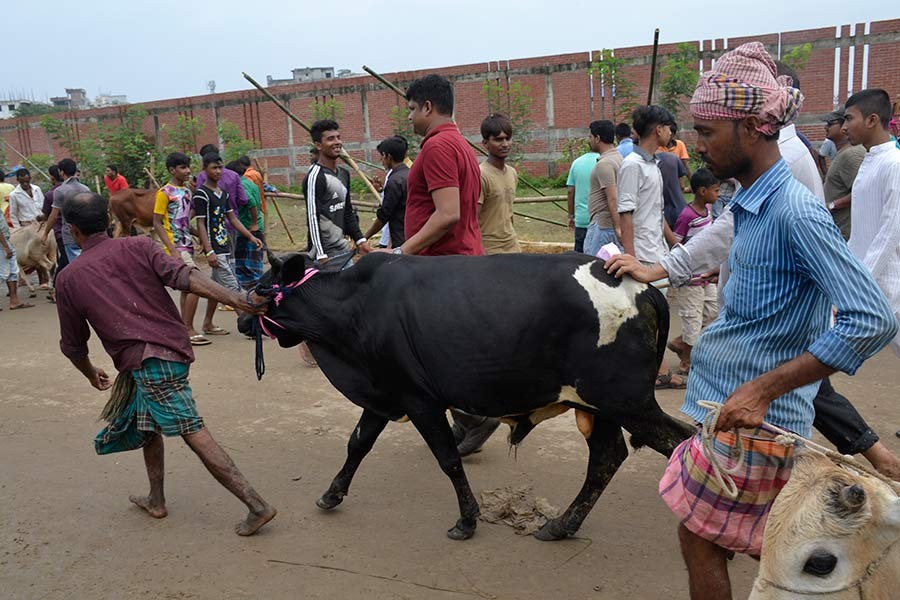The days preparatory to Eid-ul-Azha remain beset with misgivings in the country nowadays. The other large Musilm festival, Eid-ul-Fitr, does not cause such worries thanks to its different character of celebrations. The festivities of Eid-ul-Azha are basically centred round the ritualistic sacrifice of cattle. This very aspect warrants a massive mobilisation. Ruefully, it has been found deficient in many respects since long.
This year's Eid-ul-Azha is only weeks away. The authorities put in place initiatives in the last few years to keep the festival free of the familiar menaces; those could not remain foolproof till the end though. Sensible sections of people have already begun expressing anxieties over a lot of hazards that spoil the occasion's spirit. Of the many, a few worries dominate this Eid of sacrifice from the beginning to the final days of the festival. In a broader overview, they include hygienic rearing of sacrificial animals, environment- and people-friendly cattle markets, preventing entry of smuggled animals etc. Notwithstanding the great outcry over the fattening of cattle with harmful chemicals, the practice continues to trouble many people. Except those aware of the health hazards of consuming the meat of these cattle, buyers in general go for the fattened animals. This assures the unscrupulous traders of profit bonanzas, but plays havoc with people's health.
Due to the source of these fattened cattle being the vast rural areas, deterrent attempts presumably fail to work. But this cannot be served as logic for taking no steps at all in preventing the menace. Thanks to this laidback attitude adopted by the authorities in charge, the practice of fattening cows with lethal chemicals returns with vengeance every year. In the hiatus, the unwitting consumers of meat suffer. Local syndicates are said to be involved in the sacrificial cattle's rearing, trade and arrangement of their markets. Unlike the isolated, small-level dairy farms and individual farmers, they work in an organised manner. Not all of them are errant, but some definitely are. The task of coping with the cow-fattening scourge calls for a stringent monitoring and law enforcement mechanism. It ought to operate round the year, and become fully effective in the final run-up to Eid-ul-Azha.
The faulty arrangement of cattle markets brings a lot of sufferings for the general people. They include the Dhaka-dwellers in the main. Lately, the highway users are not spared the inconveniences caused by improvised markets arranged on roadsides. Owing to the authorities' measures to fix designated venues for these markets, the capital remained largely free of this ordeal in the last few years. This year a faint ambiguity in the government circular on the Dhaka cattle markets catches many off guard. What makes them feel apprehensive is the possible misinterpretation of the circular by quarters planning to arrange improvised markets. These haphazardly organised cattle markets throughout Dhaka once were a veritable nightmare for the city residents. This ordeal should not reappear this year. The onus lies with the two city corporations, as well as the law enforcement agencies. An insidious scourge takes the country's genuine cattle traders hostage every year: the smuggling-in of cattle, cows in particular. Brought chiefly through the porous border with India, smuggled animals overwhelm the country's cattle markets every year. Preventive measures have proved mostly futile. At the end of the day, scores of traders, small as well as big, incur losses. The fledgling rural economy suffers in the long run. The nation can ill afford to bear with it indefinitely.


